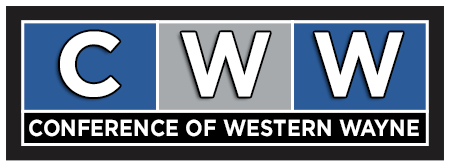The Wayne County Department of Health, Veterans and Community Wellness (HVCW), Conference of Western Wayne, Growth Works, Inc., St. Mary Mercy Livonia hospital, and local public safety agencies are increasing collaboration to help Wayne County residents who suffer from opioid addiction. Today, officials announced a “Rescue Recovery” pilot program designed to more effectively treat opioid addiction and reduce overdose deaths while helping local municipalities combat the epidemic.
“The opioid epidemic continues to devastate our communities while straining the resources we have to help our residents,” said Wayne County Executive Warren C. Evans. “We see the results of this crisis every day in our courts, jails and tragically, the morgue. We are taking an innovative collaborative approach to be more impactful, in the hopes of reaching more people.”
The voluntary program builds on existing efforts and is based upon specialized detoxification known as “Rescue Recovery” and employs peer recovery coaches. Rescue Recovery is administered by Growth Works, Inc. in partnership with St. Mary Mercy Livonia and the 18 participating Public Safety Departments in Western Wayne County.
The program combines specialized detoxification treatment and longer-term peer coaching to help participants avoid relapses on their way to overcoming their addiction. The state’s 2019 fiscal year budget allocated $500,000 to the Conference of Western Wayne to help fund increased specialized detoxification services and $115,000 to Growth Works, Inc. to help increase the number of peer recovery coaches.
“As the Chair of House Appropriations, I made it a top priority to tackle the opioid abuse epidemic in this year’s state budget,” said Representative Laura Cox of Livonia. “The collaboration between the Conference of Western Wayne, Growth Works, St. Mary Hospital and Wayne County stands out. They have developed a program that will educate and train residents on the dangers of opioids.”
The program is unique because of the comprehensive collaboration between the agencies involved. Once a public safety officer or St. Mary Mercy staff identify the need, patients are offered peer recovery coaching services.
“Too often, people know they need help, but remain vulnerable to their addiction without access to either the short or long-term care they need to avoid a relapse,” said Dave Spivey, President and CEO, St. Mary Mercy Livonia. “This effort will connect participants to expanded detoxification treatment at St. Mary Mercy, while plugging them immediately into a comprehensive post-care plan. This will greatly increase the odds of their success.”
Participants who agree to receive services will have contact with an assigned peer recovery coach within 90 minutes. The coach puts into action specific trauma reducing protocols that continue into a comprehensive post-care recovery plan through St. Mary Mercy Behavioral Health and Growth Works. Participants who choose to have peer recovery coaches will have access to ongoing coaching and case management services for up to 1 year. This includes substance use disorder treatment, medically assisted treatment support, life skills training, academic/employment support, and 12-step support.
“The extraordinary aspect about this program is that the peer recovery coaches are recovering addicts who have been there and understand how daunting the challenges are,” said Dale Yagiela, Growth Works Executive Director Emeritus. “Their combination of life experience, recovery, and peer recovery training make them uniquely qualified to be effective in this street-level outreach campaign.”
The peer recovery coaches will serve as liaisons between police departments, municipal governments, and HVCW and will establish relationships with community and faith-based organizations. They will operate out of an office at the Federally Qualified Health Clinic (FQHC) in the city of Wayne, allowing access to other general health services, both at the FQHC and Wayne County’s HVCW, including regular doctor visits, dental care, and WIC, among hundreds of other services.
“It’s important to remember that addiction takes a toll on almost all other aspects of people’s lives,” said Marcy Johnson, Wayne County Director of Clinical Services. “So it’s critical to connect them with the resources and programs Wayne County offers to lend support in many different ways so that the focus of the patient can be getting sober and healthy.”
Between 1999 and 2015, more than 183,000 people have died in the United States from overdoses directly related to prescription opioids. In 2016, opioid-related deaths in Wayne County alone totaled 817, up from 506 in 2015, a 61% increase.
Growth Works and St. Mary Mercy Livonia will collect outcome data for up to 1 year post-detoxification to establish measureable outcomes and adjust programming with the hopes of scaling Rescue Recovery.
###
http://www.stmarymercy.org/body_livonia.cfm?id=3007&action=detail&ref=6635
